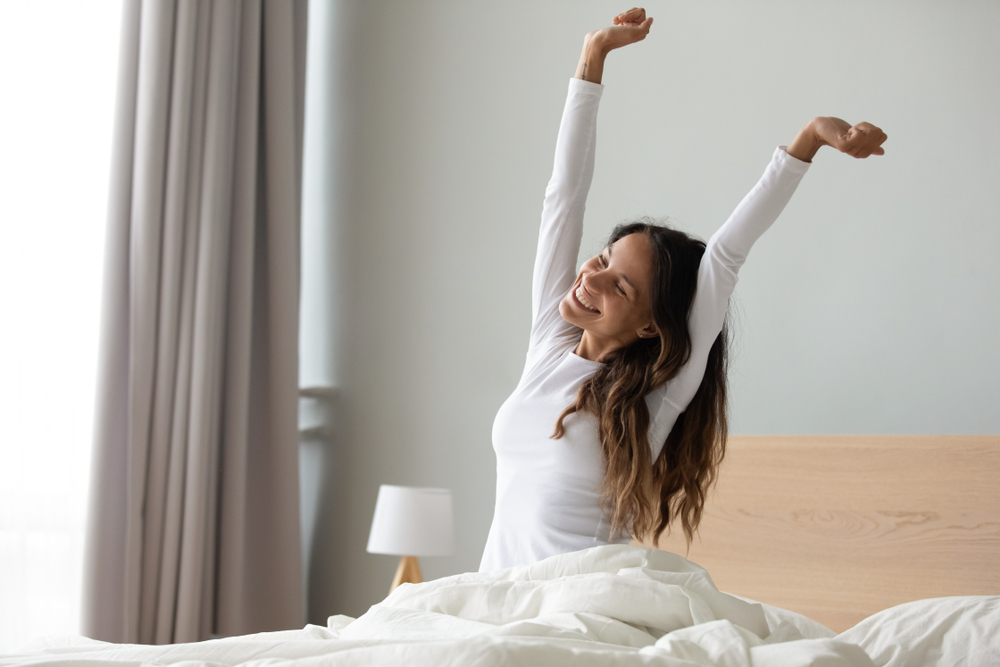Sleep, the mysterious guardian of our nights, is much more than just a break. In reality, it is the cornerstone of our energy and well-being. Yet, many struggle to achieve truly restorative rest. Why? Thanks to recent scientific discoveries, we unveil the secrets of restorative sleep by transforming them into an endless source of vitality. Get ready to discover life-changing tips… and wake up refreshed every morning!
1. Why Is Sleep Essential?
Each night, our body and mind engage in a complex dance of cycles and phases. Deep sleep is crucial for physical recovery, while REM sleep stimulates the brain, strengthening memory and creativity. Quality sleep also balances hormones, particularly those regulating appetite and stress, and boosts the immune system. Simply put, restful sleep is the ultimate remedy for staying alert, healthy, and even charming!
2. Align Yourself with Your Biological Clock
Your body follows an internal clock, or circadian rhythm, governed by light. To keep it in sync:
✔ Expose yourself to natural light in the morning to signal your brain that it’s time to wake up.
✔ Avoid screens before bed, as their blue light delays melatonin production, the sleep hormone.
✔ Maintain consistent bedtime and wake-up schedules to reinforce your body’s natural rhythm, ensuring more restful nights and energized mornings.
3. Creating the Ideal Sleep Environment
Transforming your bedroom into a sleep-friendly oasis can make all the difference. The perfect setup includes:
✔ A cool temperature between 60–68°F (16–20°C).
✔ Absolute silence—use earplugs if needed.
✔ Total darkness—install blackout curtains or use an eye mask.
✔ High-quality bedding—a comfortable mattress and pillow suited to your physical needs.
✔ A tech-free zone—remove electronics from your bedroom to prevent sleep disruptions and create a tranquil atmosphere.
4. The Hidden Enemies of Your Sleep
To safeguard your sleep, adopt healthy evening habits:
❌ Eat light dinners—opt for easily digestible foods. Overeating or consuming alcohol before bed disrupts deep sleep.
❌ Avoid caffeine after 2 PM—found in coffee, tea, and some sodas, it can extend wakefulness.
❌ Say goodbye to stress before bedtime—engage in soothing rituals like meditation or reading to ease into relaxation.
5. When Science Meets Practice
Recent research highlights innovative sleep-enhancing techniques:
✔ White or pink noise, played at low volume, can help some people fall into deeper sleep.
✔ Adaptogenic plants like ashwagandha support relaxation without inducing drowsiness.
✔ Light therapy lamps help combat seasonal changes and jet lag-related sleep disturbances.
6. Understanding Sleep Cycles
Your sleep follows 90-minute cycles, alternating between different phases:
✔ Falling asleep—a smooth transition from wakefulness to light sleep.
✔ Deep sleep—the key phase for physical recovery.
✔ REM sleep—the time for dreaming and creativity.
💡 Pro tip: To wake up refreshed, try to do so at the end of a cycle, rather than in the middle of deep sleep.
7. Listen to Your Body’s Signals
Yawning, heavy eyelids… your body sends clear signs when it’s time to sleep. Ignoring these cues can cause you to miss your ideal sleep window. Instead, respect your natural rhythm and stick to a consistent routine.
Conclusion: Make Sleep a Priority
Sleep is the fuel for your vitality. By caring for your nights with these expert-backed tips, you’ll boost your energy, mood, and performance. So, are you ready to embrace magical nights? Try these strategies and let your dreams become your greatest allies for radiant days! those are the secrets of restorative sleep.
Sources:
- Sleep Foundation – “Understanding Sleep Cycles”
- Mayo Clinic – “Healthy Sleep Habits”
- Harvard Health – “Why sleep is so important”
- NHS UK – “Tips for better sleep”
- WebMD – “How to Get Better Sleep”


